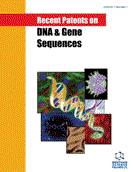Abstract
Histopathological diagnosis using Formalin-Fixed Paraffin Embedded (FFPE) tissues is essential for the prognostic and therapeutic management of cancer patients. Pathologists are being confronted with increasing demands, from both clinicians and patients, to provide immunophenotypic and gene expression data from FFPE tissues to allow the planning of personalized therapeutic regimens. Recent improvements in the protocols for pre-analysis processing of pathological tissues aim to better preserve cellular details and to conserve antigens and nucleic acid sequences. These developments have been recently patented. The international protocol for the transporting of surgical specimens from the surgical theatre to the pathology department is to immerse the specimen in formalin. The alternative method of sealing the specimens into bags under a vacuum and then cooling is a well-accepted and environmentally safe procedure that overcomes the many drawbacks linked to transfer in formalin. Importantly, RNA is notoriously poorly preserved in FFPE tissue. Due to this, successful procedures for the extraction of genetic information from archival tissues have been the object of several studies and patents. Novel molecular approaches for RT-qPCR and gene array analysis on FFPE tissues are presented here. Moreover, a major advance is reported in this study, the observation that tissue fixation in cold conditions allows a much better preservation of nucleic acid sequences.
Keywords: Breast cancer, fixation, formaldehyde, formalin, genes, histopathology, neoplasms, nucleic acids, pathology, RNA, RT-PCR, sealing, tissues, tissues banks, under-vacuum
 97
97

